Foods Your Chihuahua Should Not Eat – BEWARE!
Many common foods that are perfectly safe for humans to consume can cause severe illness in a Chihuahua.
We’ve all heard about the danger of chocolate, but did you know these other commonly eaten treats could be toxic?
Chihuahuas should not be given any of the following foods:
- Chocolates
- Avocado
- Xylitol in gums and candies
- Onions, garlic, and chives
- Apple seeds
- Caffeine in coffee, tea, and soda
- Salt, spices, monosodium glutamate (MSG)
- Alcoholic beverages
- Grapes and raisins
- Macadamia nuts
- Others
Some foods are only dangerous when fed in large amounts, while other foods should never be given to a Chihuahua.
This article provides information on both types of food items for Chihuahuas, so you can learn which foods are safe and which ones should be avoided altogether.
Chocolate
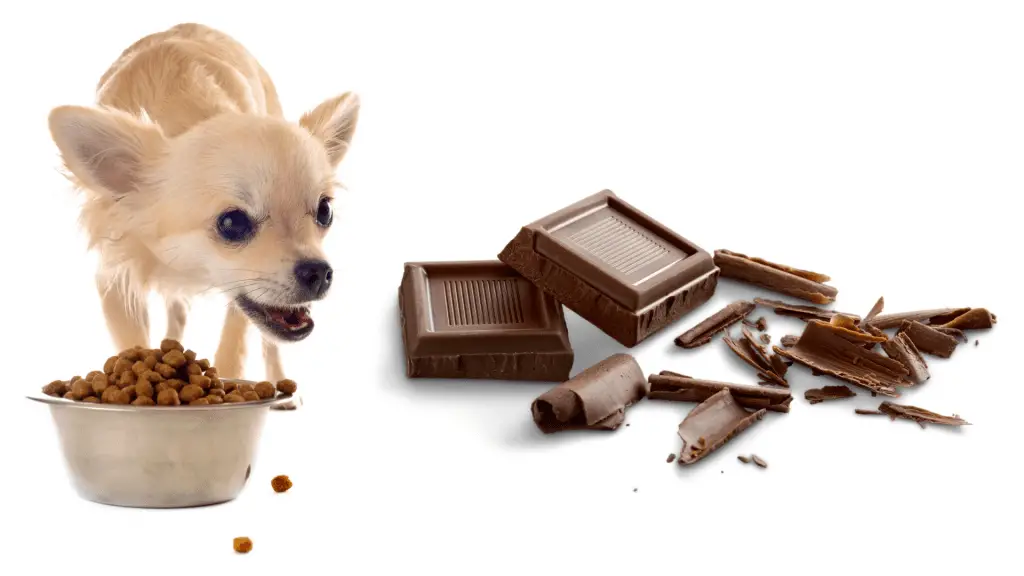
We’ve all heard about the dangers of chocolate for dogs. Chocolate contains a chemical called theobromine, which can be toxic to pets.
The darker and richer in cocoa solids the chocolate is, the more poisonous it is to your dog. Baker’s chocolate and dark chocolate pose higher risks than milk chocolate.
Cocoa mulch is also dangerous for your pet because it contains high amounts of cocoa solids that dogs find irresistible.
It’s best to keep all chocolate (candy, baking chocolate, ice cream toppings, etc.) out of the reach of your dog at all times. If you suspect that your Chihuahua has consumed any form of chocolate, seek immediate veterinary care.
Avocado
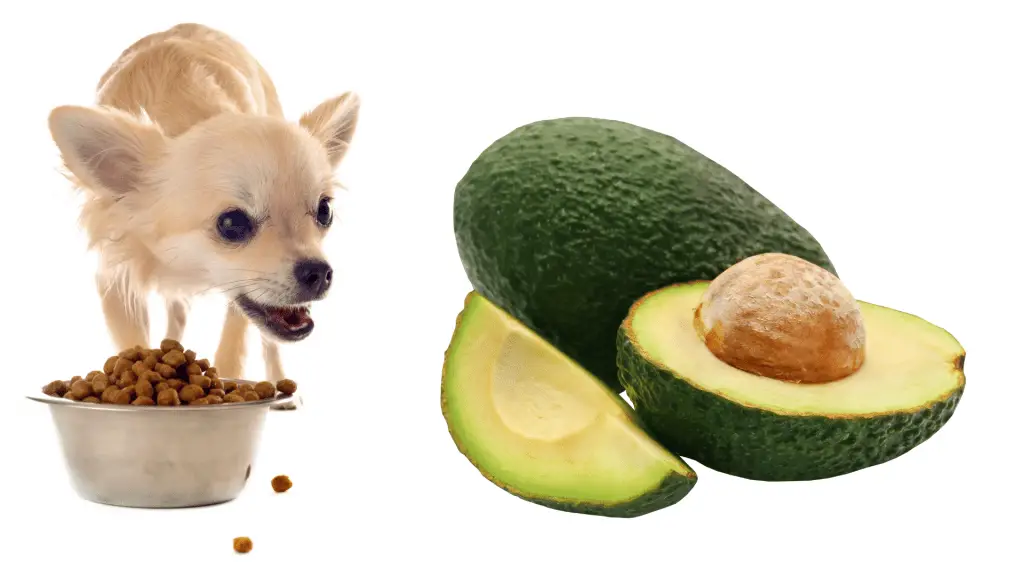
The leaves, fruit, seeds, and bark of avocados are all toxic to Chihuahuas as they contain a substance called persin.
Persin is an oil-soluble toxin that can cause vomiting, diarrhea, and respiratory distress in your pup.
The symptoms of persin toxicity become apparent within 12 hours after your Chihuahua has eaten avocado and may result in death if left untreated.
If you suspect that your Chihuahua has eaten avocado, take her to the veterinarian immediately.
Xylitol
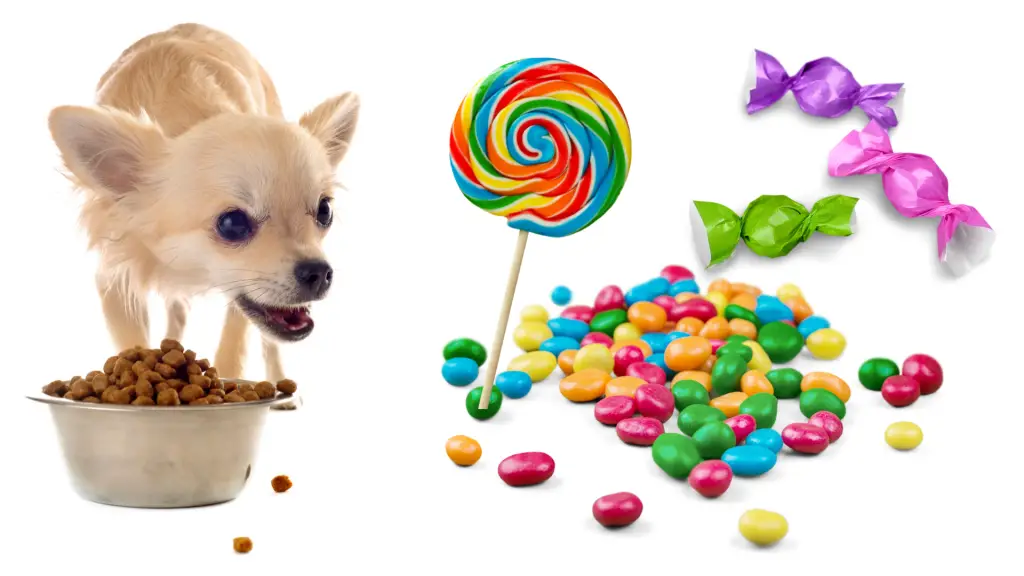
Xylitol is a sweetener that is often found in sugar-free gum and some brands of peanut butter.
It can cause liver damage if eaten in sufficient quantities, so it should never be given to dogs since even a small bite could make them very sick.
Xylitol poisoning can cause vomiting, loss of coordination, lethargy, collapse, and seizures in your pet.
If you think your pup has consumed xylitol or any product containing this harmful ingredient, seek veterinary care immediately.
Onions, Garlic, and Chives
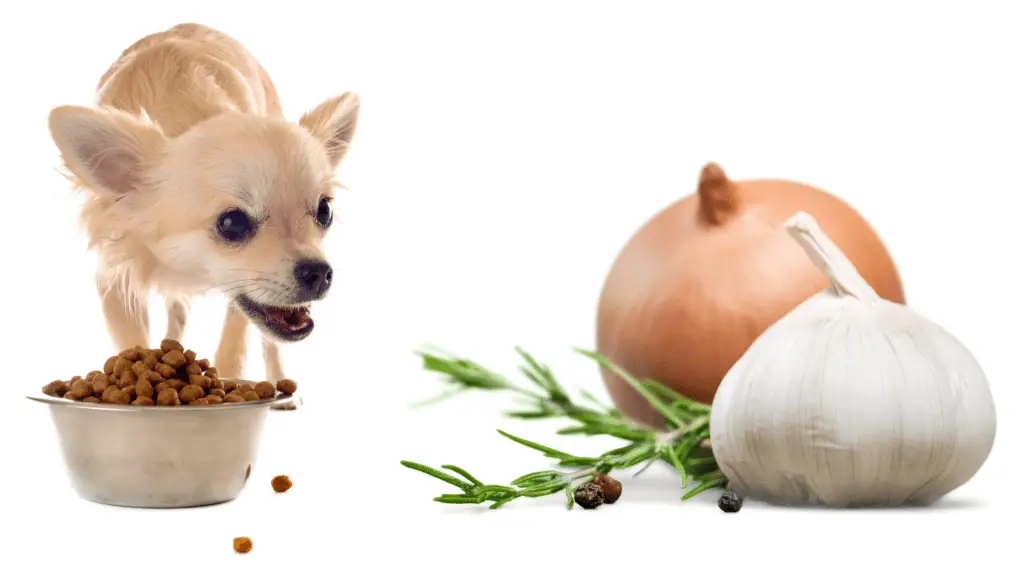
All members of the onion family (leeks, chives, scallions, and shallots) contain a substance called thiosulphate which damages red blood cells.
If eaten in sufficient quantities, this substance can cause vomiting, diarrhea, yellow gums, and anemia in your pup.
Onions also contain disulfides and sulfoxides that lead to hemolytic anemia, which is the destruction of red blood cells.
Although garlic has a weaker effect than onions, it should still be given to Chihuahuas sparingly.
All forms of onion and garlic must be avoided when feeding your pup, even if you are using just a small amount of seasoning.
Chives contain the same dangerous substance as onions and garlic, so they should be kept away from your Chihuahua.
Apple Seeds
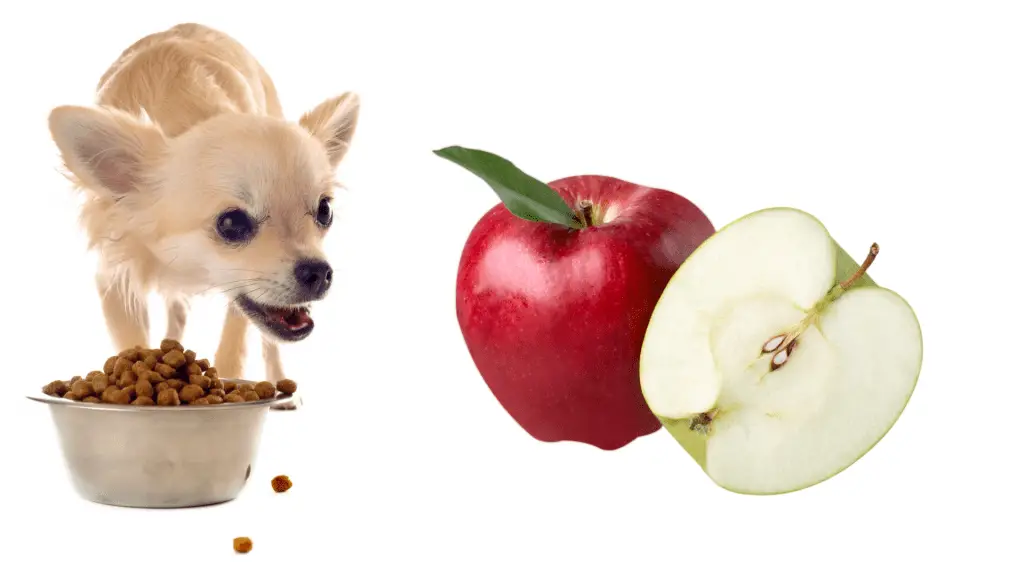
Apple seeds contain trace amounts of cyanide.
It only takes a small number of apple seeds to cause cyanide poisoning, so be sure to remove all seeds from the core before feeding them to your pup.
Symptoms of cyanide poisoning include difficulty breathing, lethargy, blood around the mouth and body, vomiting, loss of coordination, seizures, coma, and possibly death.
Caffeine
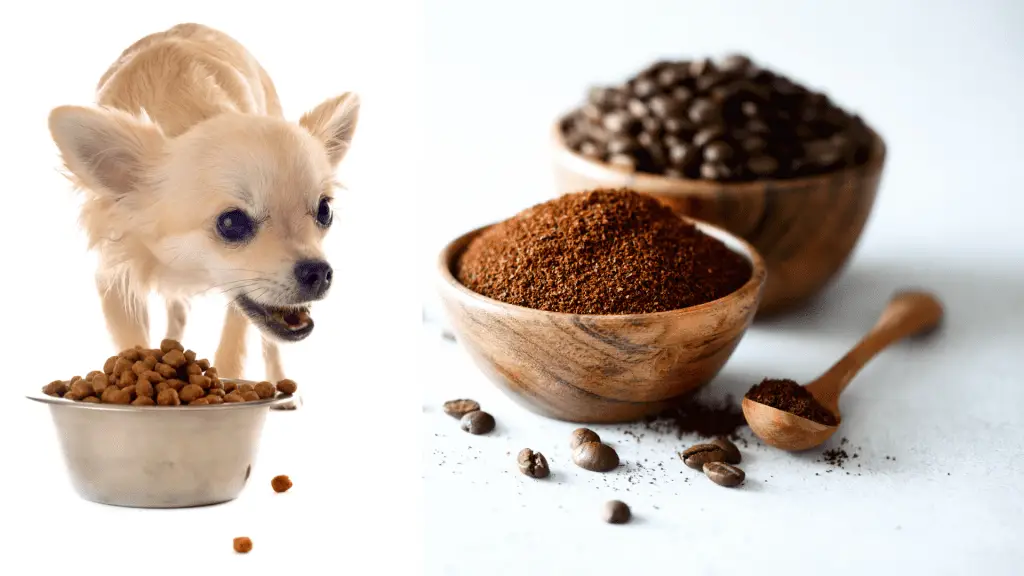
Chihuahuas are very sensitive to the effects of caffeine just as other small breeds can be.
Coffee, tea, chocolate, yerba mate, guarana berries, and cocoa beans all contain caffeine.
Caffeine is a stimulant of the nervous system that speeds up the heart and causes hyperactivity in dogs.
If a Chihuahua eats large amounts of any of these substances it can cause vomiting, diarrhea, increased heart rate, and blood pressure, restlessness, tremors, or seizures.
If your pup gets into caffeine-containing products or food items by accident, contact the veterinarian for advice on what to do next. You may need to induce vomiting depending on how much your dog has eaten.
Salt, Spices, Monosodium Glutamate (MSG)
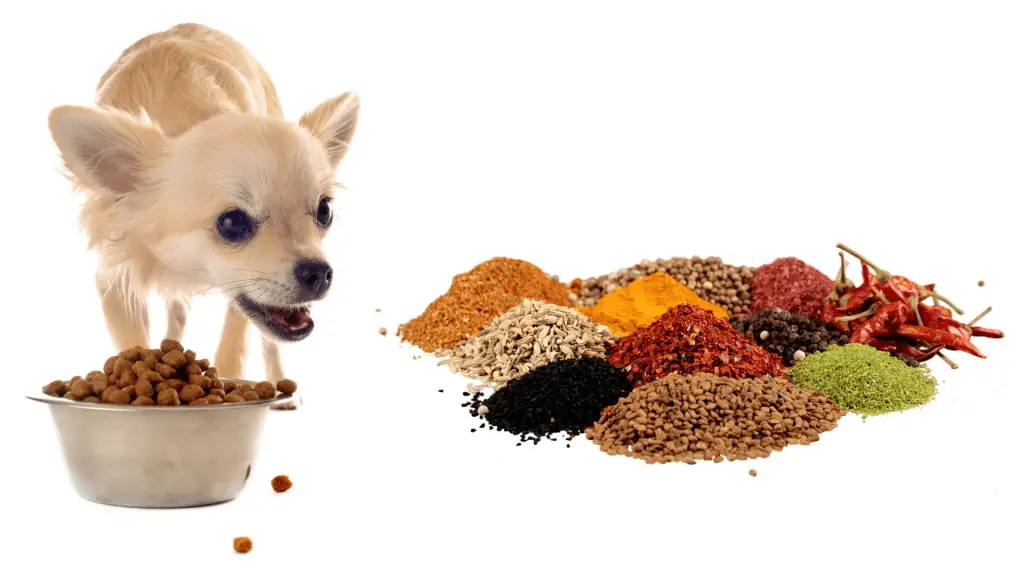
Although salt is not inherently toxic to dogs, it can cause fluid retention and lead to what is known as “sodium ion-induced water toxicity” if eaten in large quantities.
This condition can be life-threatening, so it’s best to keep your Chihuahua away from anything that contains high amounts of salt.
Spices and condiments like cinnamon, black pepper, cayenne pepper, paprika, curry powder, salt substitutes (potassium chloride), garlic salt, onion salt, chili powders (chili peppers and cumin), MSG (monosodium glutamate), and any other powdered spices or mixes should be kept well out of reach of your pet.
Symptoms of salt toxicity include excessive thirst, irritability, lethargy, depression, vomiting (sometimes with blood), diarrhea, loss of appetite, and/or muscle tremors.
If your dog gets into any food items containing a lot of salt or spices, contact the veterinarian immediately for advice on what to do next.
Grapes and Raisins
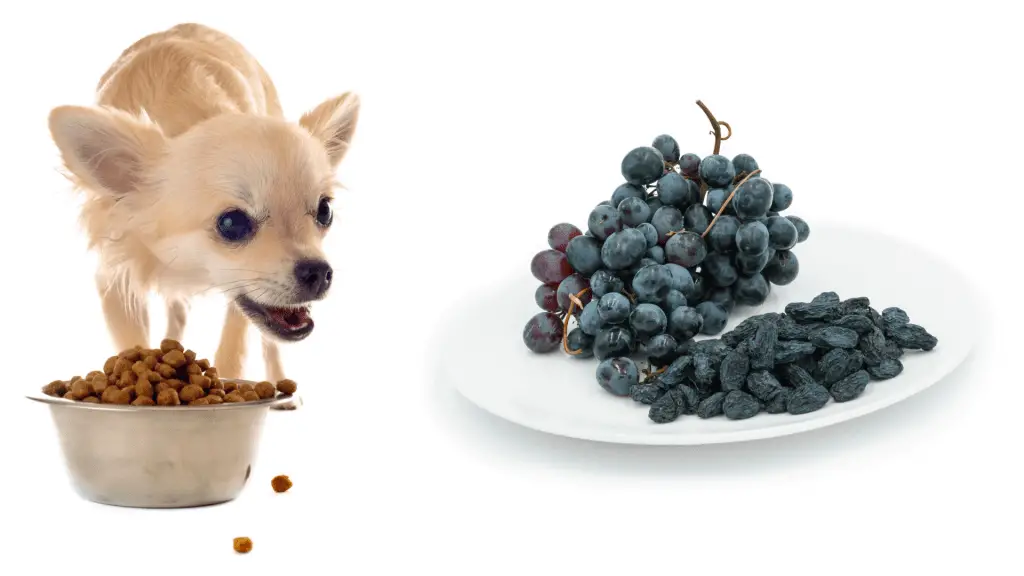
Raisins and grapes can cause renal failure in dogs.
The mechanism behind this is not definitely known, but it could be related to the seeds of grapes and raisins as some animals have also developed these symptoms from eating these seeds.
Symptoms of grape or raisin poisoning include vomiting, diarrhea, loss of appetite, lethargy or depression, abdominal pain and/or dehydration.
If your Chihuahua has eaten grapes or raisins, contact the veterinarian instantly for advice to prevent further damage to the kidneys.
Macadamia Nuts
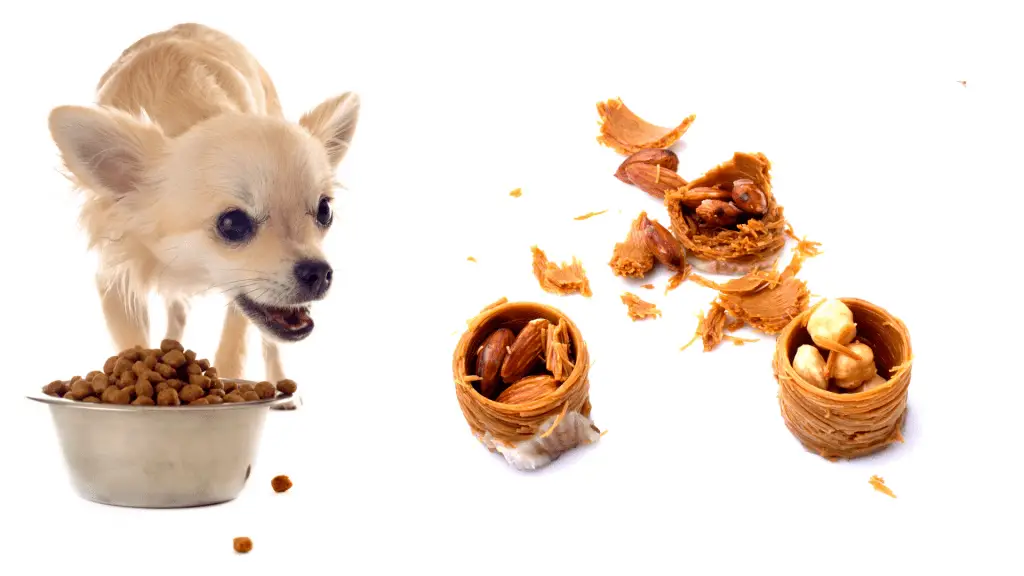
These delicious nuts can be fatal to dogs because they contain an unknown toxin that affects the muscles and nervous system.
Although the mechanism behind this toxin is unknown, it can cause weakness in the rear legs and other symptoms of paralysis like a wobbly gait, difficulty breathing, panting, or fast heart rate.
The fat from nuts may also accumulate on the liver and create toxicity within 24-72 hours after ingestion so be prepared to bring your pup to the vet for supportive therapy on an emergency visit if they eat a lot of macadamia nuts.
Other Foods that Can Be Toxic to Chihuahuas
Asides from the foods listed above, the following foods should also be kept well out of reach of your pet.
- Raw bread dough – can expand in the stomach and cause bloat, leading to discomfort and possible risk of a ruptured stomach or intestines.
- Milk, cheese – can cause diarrhea, bloat, and lethargy.
- Tomatoes, white potato skin/flesh – contain atropine which can cause dilated pupils, tremors, and irregular heartbeat.
- Bones – can splinter and cause internal damage.
- Fatty foods – can cause pancreatitis which can lead to vomiting, diarrhea, and abdominal pain.
- Raw meat – may contain salmonella.
What To Do When Your Chihuahua Ate These Foods
If your Chihuahua has eaten any of the foods mentioned above, contact a veterinarian immediately for advice.
The substances in the foods can cause damage to a pup’s organs and may require supportive therapy or inducement of vomiting to remove the substance from their system.
Depending on how much your dog has ingested, some of these symptoms may be severe and require intubation in an intensive care unit setting.
Conclusion
Keeping your Chihuahua away from certain foods and being a responsible pet owner goes a long way in preventing dogs from becoming sick or dying as a result of consuming dangerous substances.
Be prepared with the phone number for your veterinarian’s office so that you can quickly get help when it’s needed to protect and treat your pup.

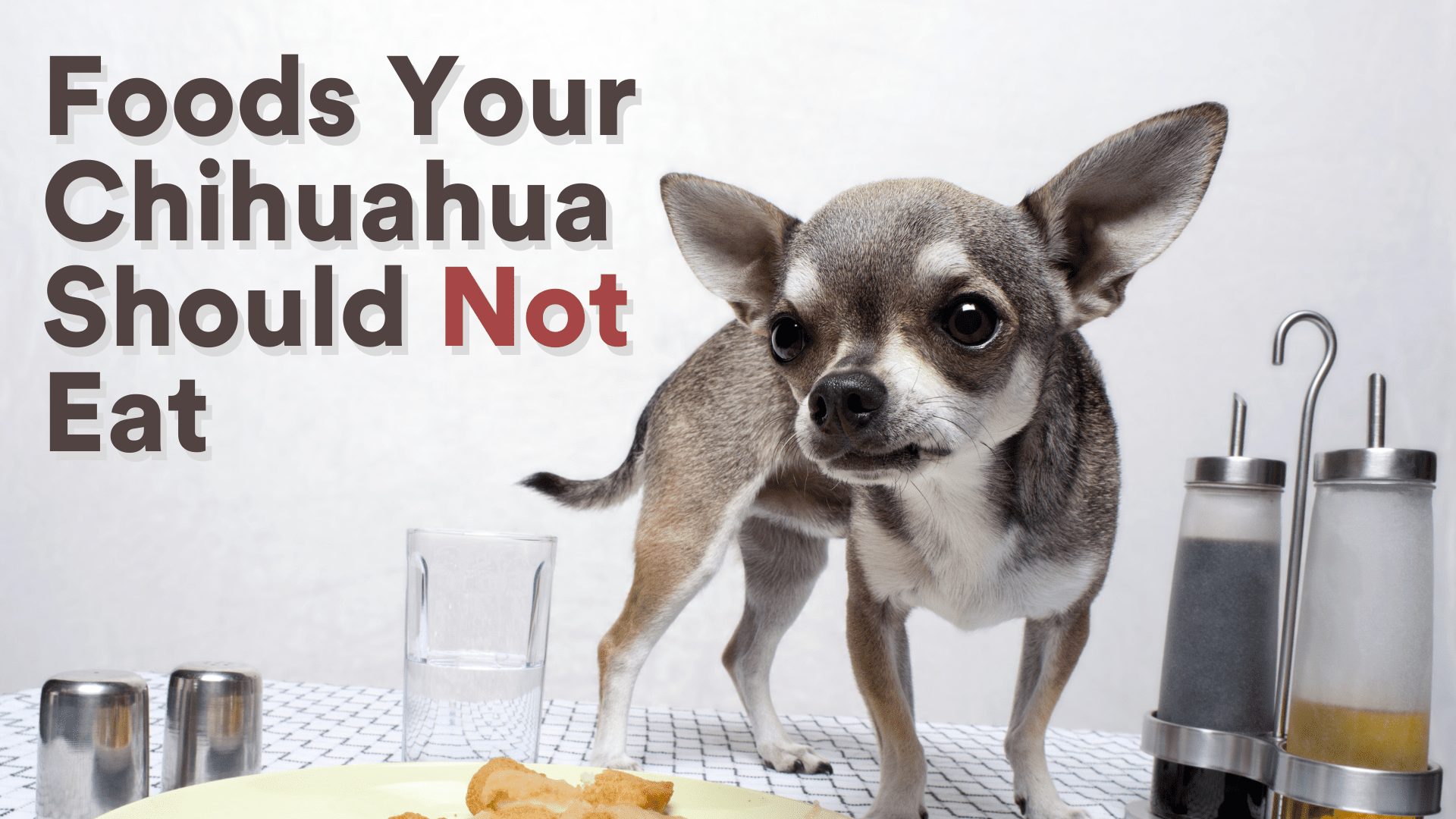
![How to Stop a Chihuahua from Biting [Training Tips]](https://atractivopets.com/wp-content/uploads/2021/09/How-to-Stop-a-Chihuahua-from-Biting-768x432.png)
![How Much Water Should A Chihuahua Drink A Day? [Hydration Guide!]](https://atractivopets.com/wp-content/uploads/2021/10/1-7-768x432.jpg)
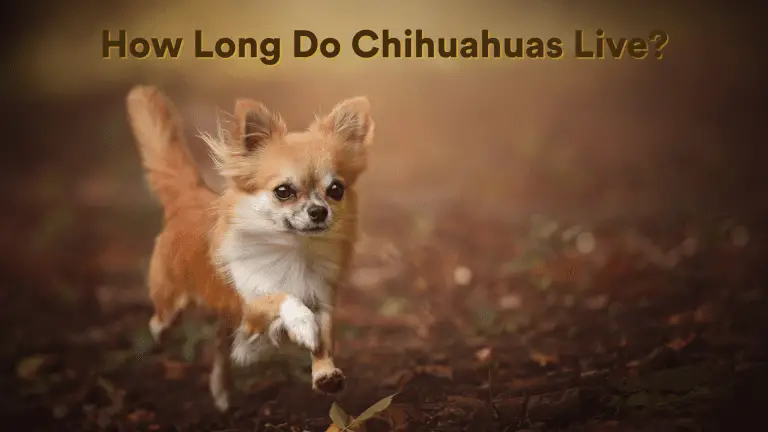
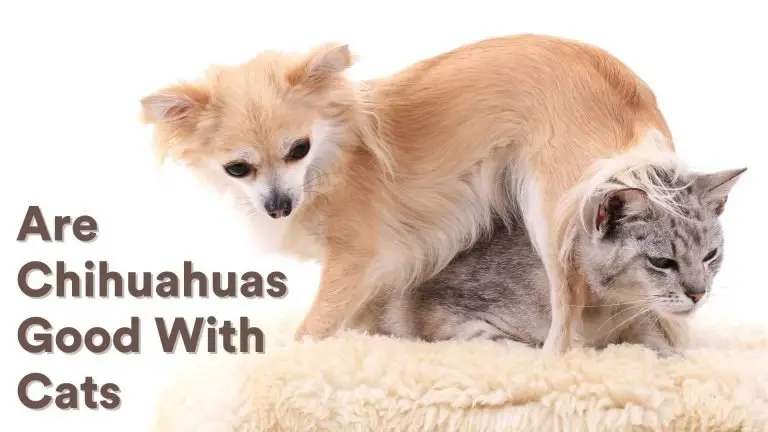
![15 Ways To Make Your Chihuahua Happy [Must Know!]](https://atractivopets.com/wp-content/uploads/2021/10/1-19-768x432.jpg)
![When Do Chihuahuas Ears Stand Up? [Or Why Not!]](https://atractivopets.com/wp-content/uploads/2021/09/When-Do-Chihuahuas-Ears-Stand-Up-768x432.jpg)